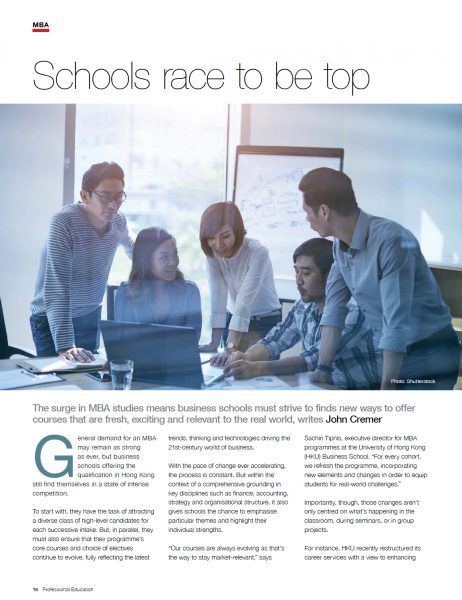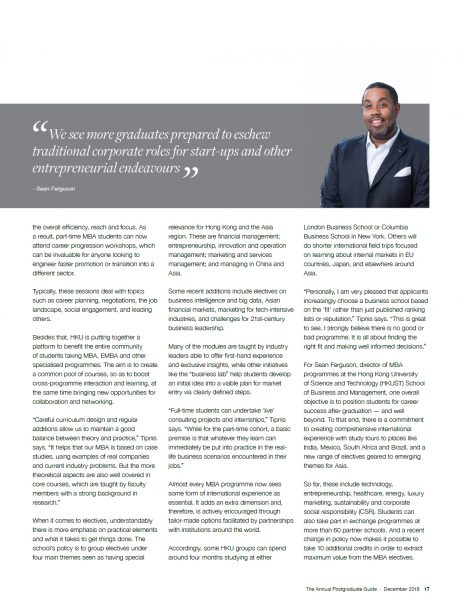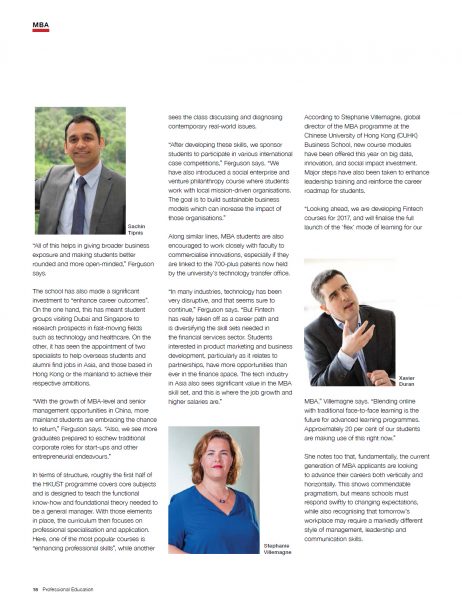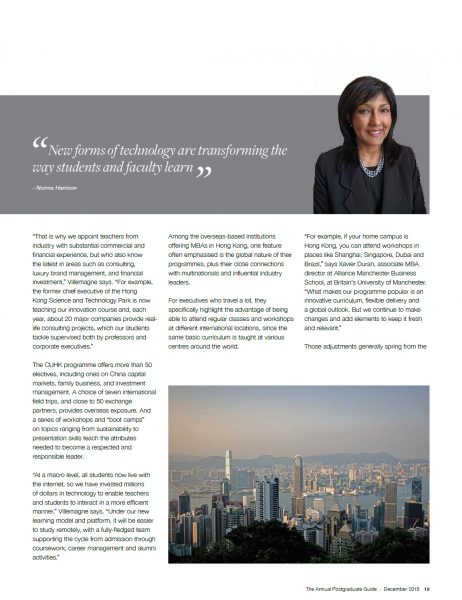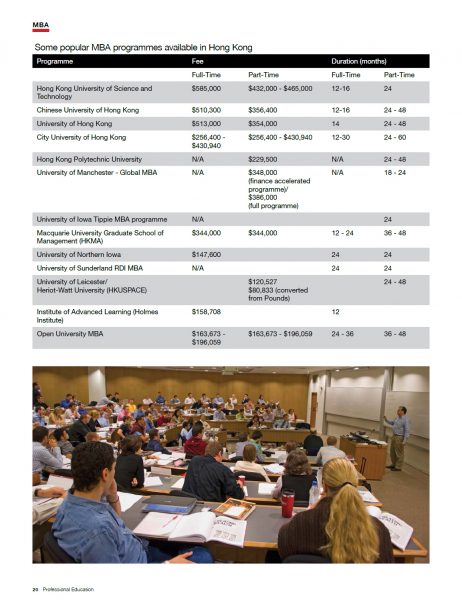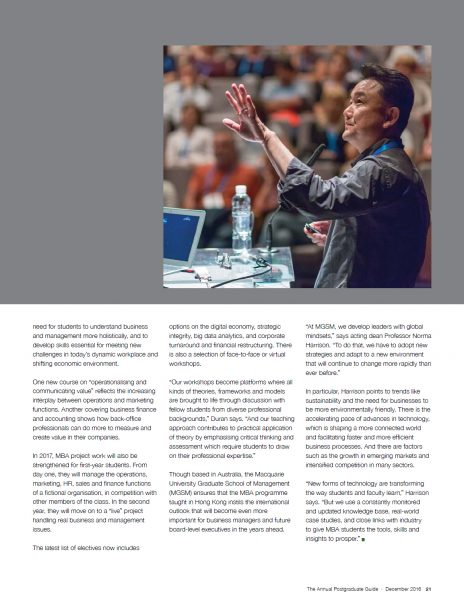MBAs Evolve to Stay Relevant in Changing World

In an interview with South China Morning Post, Stephanie Villemagne says CUHK MBA has offered new course modules on big data, innovation, and social impact investment this year. Major steps have also been taken to enhance leadership training and reinforce the career roadmap for students.
The surge in MBA studies means business schools must strive to finds new ways to offer courses that are fresh, exciting and relevant to the real world.
General demand for an MBA may remain as strong as ever, but business schools offering the qualification in Hong Kong still find themselves in a state of intense competition.
To start with, they have the task of attracting a diverse class of high-level candidates for each successive intake. But, in parallel, they must also ensure that their programmes’ core courses and choice of electives continue to evolve, fully reflecting the latest trends, thinking and technologies driving the 21st-century world of business.
With the pace of change ever accelerating, the process is constant. But within the context of a comprehensive grounding in key disciplines such as finance, accounting, strategy and organisational structure, it also gives schools the chance to emphasize particular themes and highlight their individual strengths.
In an interview with South China Morning Post‘s Education Post, Stephanie Villemagne, Associate Dean (Graduate Programmes) and Director of MBA programmes at The Chinese University of Hong Kong (CUHK) Business School says that new course modules have been offered this year on big data, innovation, and social impact investment. Major steps have also been taken to enhance leadership training and reinforce the career roadmap for students.
“Looking ahead, we are developing Fintech courses for 2017, and will finalize the full launch of the ‘flex’ mode of learning for our MBA,” Villemagne says. “Blending online with traditional face-to-face learning is the future for advanced learning programmes. Approximately 20 percent of our students are making use of this right now.”
She notes too that, fundamentally, the current generation of MBA applicants are looking to advance their careers both vertically and horizontally. This shows commendable pragmatism, but means schools must respond swiftly to changing expectations, while also recognizing that tomorrow’s workplace may require a markedly different style of management, leadership and communication skills.
“That is why we appoint teachers from industry with substantial commercial and financial experience, but who also know the latest in areas such as consulting, luxury brand management, and financial investment,” Villemagne says. “For example, the former chief executive of the Hong Kong Science and Technology Park is now teaching in our innovation course and, each year, about 20 major companies provide real-life consulting projects, which our students tackle supervised both by professors and corporate executives.”
CUHK MBA offers more than 50 electives, including ones on China capital markets, family business, and investment management. A choice of seven international field trips, and close to 50 exchange partners, provides overseas exposure. And a series of workshops and “boot camps” on topics ranging from sustainability to presentation skills teach the attributes needed to become a respected and responsible leader.
“At a macro level, all students now live with the internet, so we have invested millions of dollars in technology to enable teachers and students to interact in a more efficient manner,” Villemagne says. “Under our new learning model and platform, it will be easier to study remotely, with a full-fledged team supporting the cycle from admission through coursework, career management and alumni activities.”… Read More (PDF)
This article was also reprinted on 9 December 2016 by South China Morning Post‘s Education Post in the booklet called “Professional Education – The Annual Postgraduate Guide” (p.18-20). Please click the images below to view the media clippings.
Source: South China Morning Post
Date published: 29 November, 2016 / 9 December, 2016

